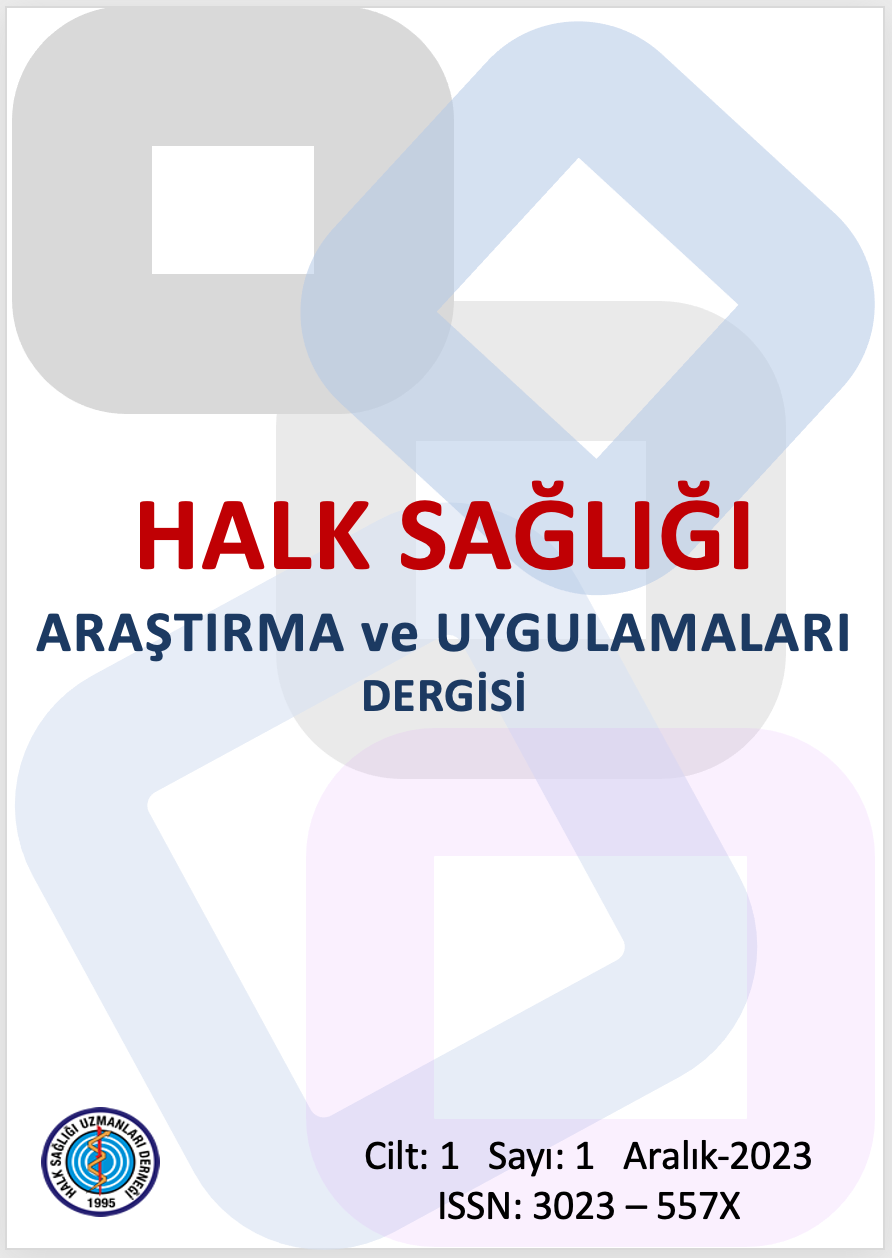Community mental health services in Türkiye: A qualitative study
DOI:
https://doi.org/10.5281/zenodo.10433375Keywords:
Community Mental Health Center, Preventive Mental Health, Mapping, Qualitative StudyAbstract
Studies on community mental health in Türkiye focus more on detecting pathology and incidence, and focus less on preventive community mental health services. The aim of this study to carry out the situation analysis of studies and services on community mental health in Türkiye and to identify existing problems and suggestions. Qualitative methods were used in two stages in the study. In the first stage, studies on community mental health in Türkiye and institutions and organizations related to community mental health services in Türkiye between 2000 and 2022 were analyzed using the mapping method. In the second phase of the research, in-depth interviews were conducted with key informants identified as a result of mapping (10 people out of 24 who could be reached). In addition, 11 more people suggested by key informants were interviewed using the snowball technique, and a total of 21 in-depth interviews were conducted. All interviews were conducted with a semi-structured form, voice recordings were made with the consent of the individuals, and the voice recordings were converted into text before analysis. Thematic content analysis method was used to analyze the interviews. The reliability of the research was ensured by triangulation and its validity by participant confirmation. There are 195 Community Mental Health Centers (CMHC) in Türkiye as of 2022. Although the services here provide some positive results, they are not sufficient, especially in terms of service quality, planning, organization, manpower and financing, and need to be improved. According to the research data, the main 7 themes that emerged were determined as manpower, organization, financing, legislation, policy, service quality and service development. Attention was also drawn to the inadequacies in legislation and health policies. The failure to develop CMHCs, registration problems, case management problems and the failure to eliminate differences between CMHCs are frequently mentioned by key informants. Deficiencies regarding accessibility and inclusiveness of services, and especially manpower shortage, have frequently come to the fore. In addition, it has been determined that community mental health services should not be hospital-based and that the service should be strengthened with mechanisms such as day care and social support. Preventive services in the field of community mental health should not be ignored. Community-based research and projects should be supported more in order to raise public opinion about mental health.
References
Yanık M. Türkiye Ruh Sağlığı Sistemi Üzerine Değerlendirme ve Öneriler Ruh Sağlığı Eylem Planı Önerisi, Psikiyatride Derlemeler, Olgular ve Varsayımlar Dergisi. 2007, s:1-80.
Sağlık Bakanlığı. Ulusal Ruh Sağlığı Eylem Planı 2021-2023.Ankara, 2021.
Alataş G, Karaoğlan A, Arslan M, Yanık M. Toplum Temelli Ruh Sağlığı Modeli ve Türkiye’de Toplum Ruh Sağlığı Merkezleri Projesi, Nöropsikiyatri Arşivi, 2009; Özel Sayı, 46:25-29.
Soygür H. Türkiye’de Toplum Ruh Sağlığı Merkezleri: Quo Vadis? Arch Neuropsychiatr, 2016; 53:1-3.
Ensari H, Gültekin BK, Karaman D, Koç A,Beşkardeş AF.. Bolu Toplum Ruh Sağlığı Merkezi Hizmetlerinin Şizofreni Hastalarındaki Yaşam Kalitesi, Yeti Yitimi, Genel ve Sosyal İşlevsellik Üzerine Etkisi: Bir Yıllık İzleme Sonuçları. Anadolu Psikiyatri Dergisi, 2013;14:108-114.
Özden SA, Çoban Aİ. Toplum Ruh Sağlığı Merkezlerinde Çalışan Profesyonellerin Gözünden Toplum Temelli Ruh Sağlığı Hizmetleri, Psikiyatri Hemşireliği Dergisi, 2018;9(3):186-194. DOI: 10.14744/phd.2018.00922
Artukoğlu P, Kılıç B. Türkiye’de Toplum Ruh Sağlığı Hizmetlerinin Durumu: Kalitatif Bir Çalışma. XXI. Ulusal - III. Uluslararası Halk Sağlığı Kongresi, Sözlü Bildiri, 26-30 Kasım 2019, Antalya, Kongre Kitabı, s:799-806.
Kılıç B. Birinci Basamak Ruh Sağlığı Hizmetleri: Fırsatlar / Zorluklar, 19-23 Ekim 2022, İzmir. 58. Ulusal Psikiyatri Kongresi.
YÖK. Ulusal Tez Merkezi. https://tez.yok.gov.tr/UlusalTezMerkezi/ Erişim tarihi: 15.12.2022
DSM 5, Tanı Ölçütleri Başvuru Elkitabı, çev. Köroğlu E., Hekimler Yayınbirliği, Ankara, 2014.
WHO. World Mental Health Report: Transforming Mental Health For All, Geneva, 2022.
Annor S., Allen P. Why İs İt Difficult To Promote Public Mental Health? A Study
Of Policy İmplementation At Local Level, Journal of Public Mental Health, 2008;7(4), 17-29.
WHO. National Health Research System Mapping In The Eastern Mediterranean Region A Study Of Ten Countries.. Regional Office for the Eastern Mediterranean, Cairo Document WHO-EM/RPC/027/E/01.08/250, 2008.
World Bank. Dünya Bankası Türkiye İşbirliği: Ülke Programının Görünümü, 2013 http://www.worldbank.org/content/dam/Worldbank/document/tr-snapshot-apr-2013-tr.pdf Erişim tarihi : 08.05.2019
Patel V,Weobong B,Weiss HA,Anand A,et al. The Healthy Activity Program (HAP), A Lay Counsellordelivered Brief Psychological Treatment For Severe Depression, in Primary Care in India: A Randomised Controlled Trial. The Lancet, 2017;389:176-185.
Islek D, Kılıç B, Akdede BB. Out-of-Pocket Health Expenditures in patients with bipolar disorder, anxiety, schizophrenia and other psychotic disorders: Findings from a study in a Psychiatry Outpatient Clinic in Turkey. Social Psychiatry and Psychiatric Epidemiology. 2018, 53:151-60.
WHO. Comprehensive Mental Health Action Plan 2013–2030, Geneva, 2021
Downloads
Published
How to Cite
Issue
Section
License
Copyright (c) 2023 HALK SAĞLIĞI ARAŞTIRMA VE UYGULAMALARI DERGİSİ

This work is licensed under a Creative Commons Attribution-NonCommercial 4.0 International License.


